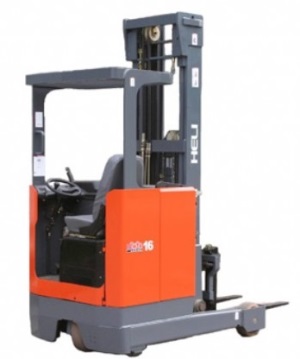Complete Powerpoint slide presentation for forklift instructors. Ready made training course
Errors in current forklift training standards
By John, (Dai), Carter M.I.M.H., M.I.M.M.,M.I.Log. (Lapsed)
 It can be seen from the previous page how the rule about applying the parking brake came about.
It can be seen from the previous page how the rule about applying the parking brake came about.
When the Industry Training Boards ceased to be statutory bodies, in the late nineteen seventies an RTITB management buyout resulted in a commercial organisation being set up and at that time they were the only people who had an approval system and there did not seem to be a need for another one.
A few commercial training companies decided that they were not prepared to continue asking a fellow commercial competitor for approval to run their businesses so they set up their own Association of Industrial Truck Trainers, (AITT), and created an entirely independent approval system which was called ITSSAR. This approval body continued to use the same system as the RTITB with no real change. I was privileged to be elected President of the AITT. (Webmaster's note: I was elected to serve on the same committee as Dai).
Later the RTITB ran into serious financial difficulties. The overheads of their operation, in particular MOTEC could not be sustained so today’s RTITB is the third version and they are now a private limited company based in Halesfield in Telford, Shropshire where they have a well equipped training centre. They have continued to maintain the original approval system but in all fairness they have always sought to maintain high standards.
AITT did not intend to become an approval centre. I believe that this was a result of a fall out with ITSSAR sometime after I left the industry. I am saddened that it happened as it seems to be a retrograde step, but I am not aware of the circumstances.
So today we have three Approval Bodies still using the same basic training system which has only undergone minor changes and we still have incomplete standards. We also have independent bodies monitoring the Approval Bodies. Where will it end? So many people involved and yet this gap in training standards bridging the gap between a Novice and a Competent Operator has not been picked up in over forty years!. The cost has to be a real burden which inevitably gets passed onto the customer.
So now we have this problem. Because the manufacturer demonstrates a different and faster system of stacking and de-stacking, the majority of operators seek to adopt that system and do so without any instruction. As no one tells their employer different, the bosses believe they have provided adequate training when in fact a critical skill has not been taught. If an experienced operator follows the manufacturer’s method of operation and uses the hydraulic controls whilst traveling to approach a load, rack or stack they will be considered incompetent and be penalised on a refresher test, on an Instructor course, or during a fork truck operator competition. That is disgraceful. No one involved in publishing standards intended this to happen, but no one has done anything about it. The. So they did a good job but literally forgot a very critical skill. Lots of effort is put into teaching longitudinal stability in order to understand a truck’s capacity plate but very little into understanding critical factors involving lateral stability. The HSE will tell you that toppling trucks are a real problem because they invariably result in high damage costs and serious injuries.